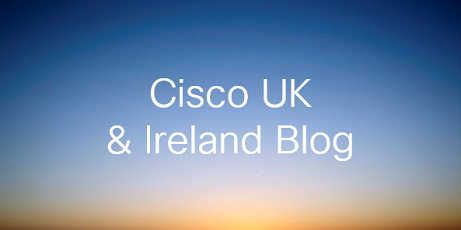
Before the Internet, business was simpler and more compartmentalised. Manufacturing companies made things, retailers sold them and so on. But now distinctions between industries are blurring. As one popular quote on social media recently put it: “Uber, the world’s largest taxi company, owns no vehicles. Facebook, the world’s most popular media owner, creates no content. Alibaba, the most valuable retailer, has no inventory. And Airbnb, the world’s largest accommodation provider, owns no real estate. Something interesting is happening.”
It certainly is and last month this was one of the things I spoke about at WORKTECH 15, a conference in Canary Wharf London co-sponsored by Cisco.
One speaker on my panel, James Maddock, head of occupier services at Cushman Wakefield, a property company, noted that some banks have more engineers than some of the big technology, media and telecommunication companies.
As I said to conference delegates, today, every business needs to view itself as a technology business.
Businesses also need to re-think their workplaces as well as the way they work and what they produce. Working from home and working on the move are increasingly common due to broadband technology, cloud smartphones, smartphones/tablets.
Having your own desk and cubicle is a lot less common than a decade ago. It’s going the way of other workplace fixtures such as ‘jobs for life’ and generous final-salary pensions. Hot-desking is more flexible and a smarter use of space.
How can companies make their offices more technologically advanced, environmentally friendly and more pleasant to work in?
At Cisco, we’re trying to re-invent the workplace for the twenty first century.
Take our new building in Berlin, called ‘openBerlin’. It’s a showcase for new technology and business ideas bringing together customers, industry partners, start-ups, application developers, accelerators, government organizations and universities.
With more than 10,000 sensors (collecting and analysing data such as room temperature, lighting, power consumption and even how much workers are sweating) it has been called the smartest building in Berlin.
The building has no phones, which save space (less cables behind desks). It also has a facial-recognition entry system rather than the standard worker swipe card.
Large companies such as Google and Amazon are opening university-style campuses, mixing cafes, cool and quirky workspaces, including roof terraces, libraries and even allotments.
Samsung’s new office in Silicon Valley, North America, is shaped like a huge glass doughnut. It’s designed around a central courtyard so that workers on one floor can look out across and see their colleagues on the floors above and below and bump into them more easily. The hope is that this proximity and open design will encourage bright ideas and better team work.
Not all companies have the budget for lavish facilities or cutting-edge architecture, of course. But those with drab and soulless offices and ropey IT facilities may struggle to attract the brightest workers, particularly younger ones.
And let’s not forget about workers’ physical and mental wellbeing. Healthier and happier workers are more productive than de-motivated ones, research has suggested.
Employers should encourage workers to socialise together and build friendships. If you have a best friend at work you’re seven times more likely to be engaged in work, according to book by Tom Rath.
So. This future-based workplace is no longer a pipe dream, it’s a reality. Let’s get to work …
3 Comments

Talking and being WITH people makes for happiness. Also how about a smartphone/IT free compulsory HOUR each week. I think A DAY mobile free at home is also a great idea
I’d rather have a cushy salary, a large final-salary pension scheme and a job for life, thanks.
It seems to be harping back to the old ways when companies cared enough for their workers and families well-being and happiness; I,m all for it bring back employees sports day and children’s Christmas parties as well.